Social Housing- creating social and extended community living spaces for a more sociable housing str
Men and women are also often affected very differently by migration. Culture shock, loss of economic role within the family and language barriers often leave female migrants more isolated and cut-off, leading to mental health problems and depression.
Current urban conditions and social housing in areas of high immigration in London often do not encourage development of social links. Though tightly packed together, homes are isolated from one another and communal spaces only transitory. This can lead to social alienation and isolation for members of these communities.
Whilst providing invaluable breathing space in dense urban environments, and opportunity for social interaction, open public spaces can also force unwanted interaction and surveillance and can become intimidating as a result, excluding groups within the community, such as many of these women.
Preconceptions about culture and fear of intrusion means that these issues are not often addressed and the needs of a large proportion of the Somers Town population are not considered in the use of public facilities and space.
In particular the scheme aims to empower new migrant women in Somers Town, namely from Bangladeshi and Somali communities.
These women make up one of the largest groups resident in the estate during the daytime and will play a key role in construction, management, running and maintenance of the scheme. The scheme aims to combat isolation, increase independence and empower the women through social opportunities and networks, development of language and working skills and involvement in the local community. The project aims to give time off from family care responsibilities through care exchange services, giving increased opportunity for social, educational and leisure activities.
‘Social Housing’ attempts to redefine and invert public and private space, extending, opening and connecting private living spaces and creating specific use human-scale spaces within public spaces. Social spaces are constructed on a gradient from private to public, encouraging personalisation and feeling of ownership, making in-between spaces into destinations.
The Social Housing scheme in Ampthill Square Estate proposes a model project for possible future housing strategies in other housing estates or urban conditions.
The structural design minimises use of material as much as possible through lightweight tensile systems, structurally efficient geometry and sourcing of recycled and recyclable materials. It is also designed to be as adaptable and changeable as possible, allowing residents to modify shared living spaces to their requirements and tastes.
 Share / Save
Share / Save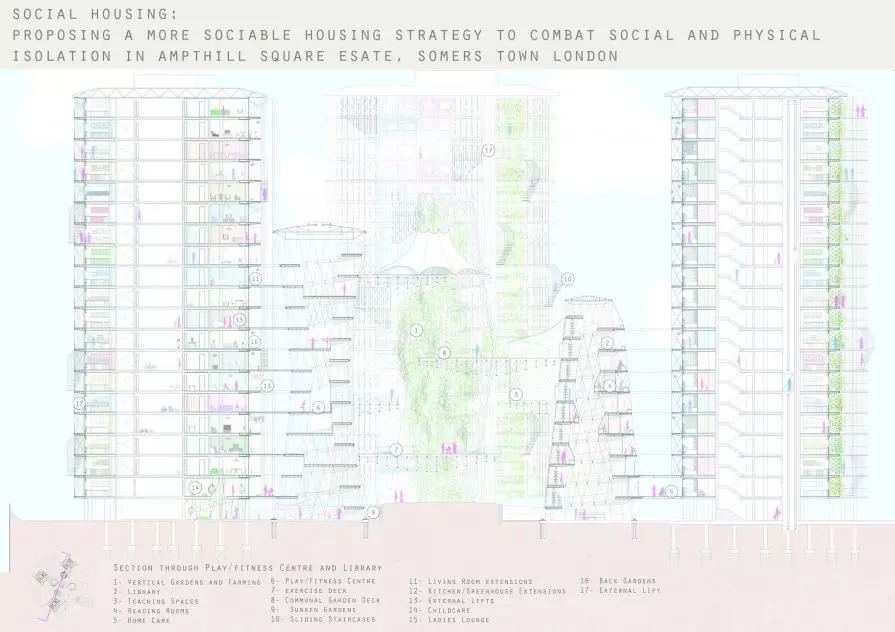
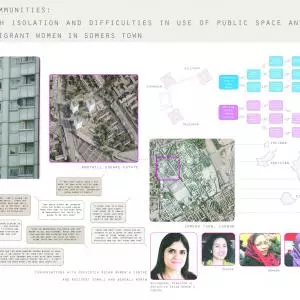
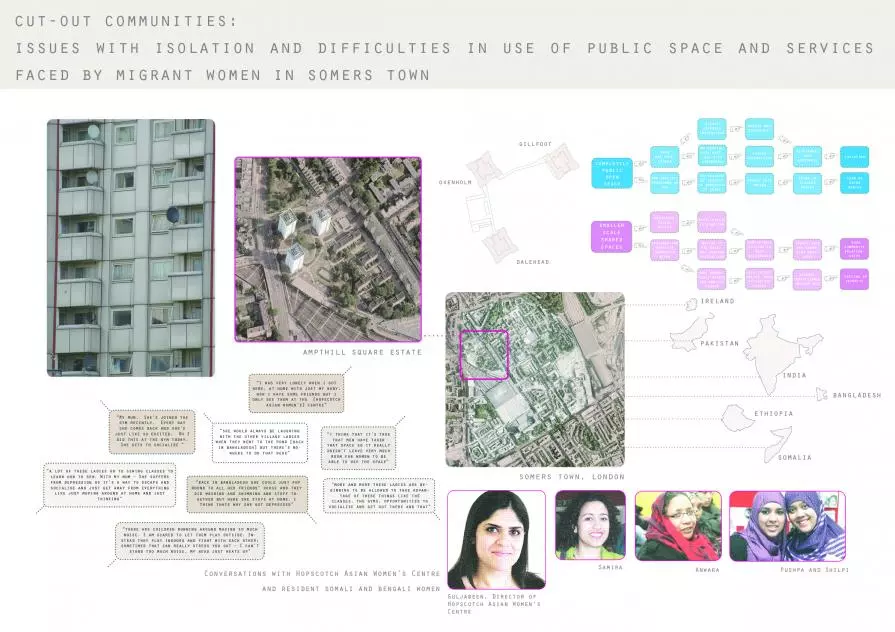
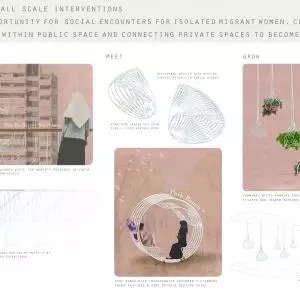
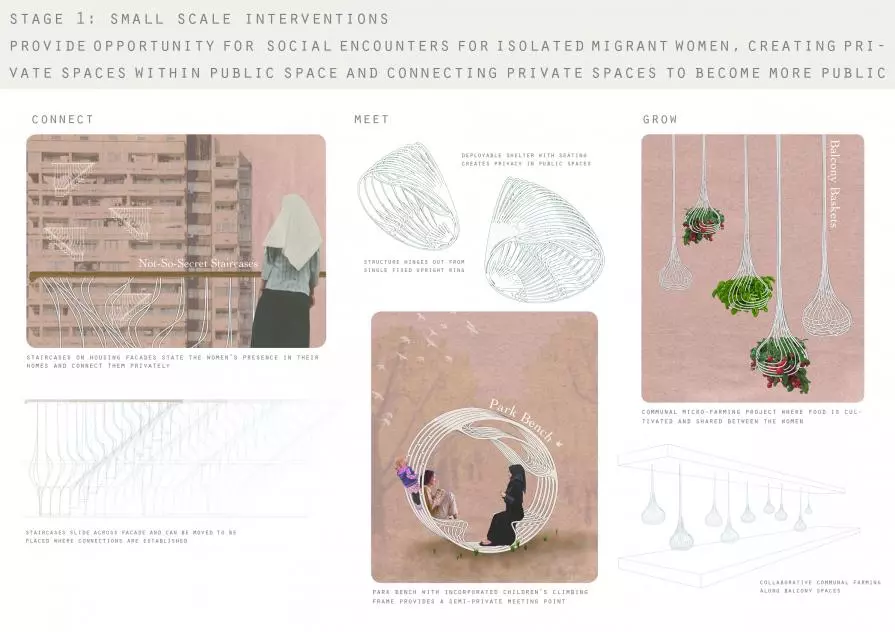
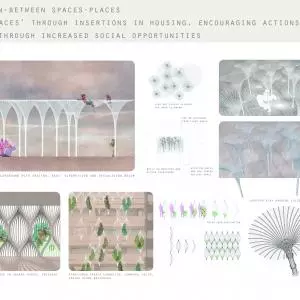
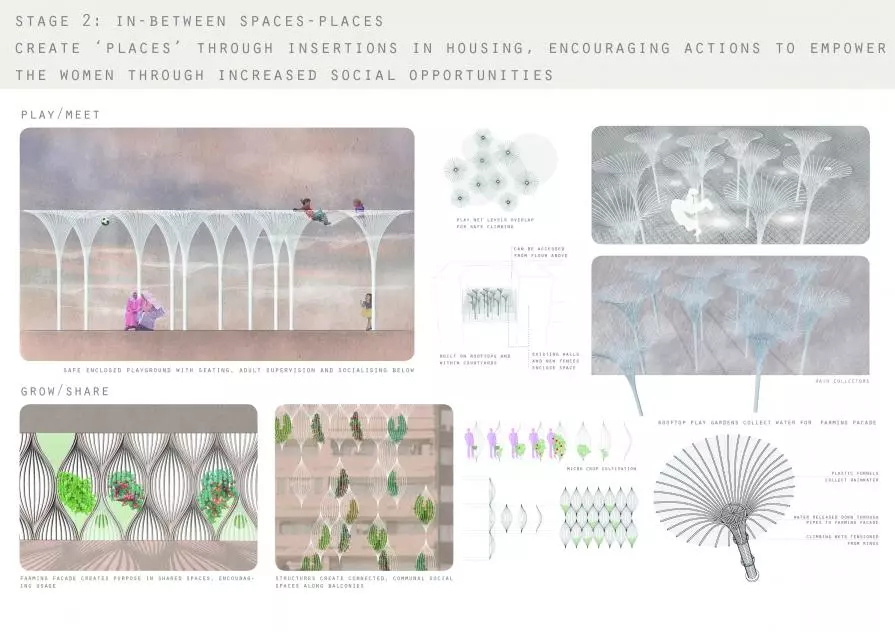
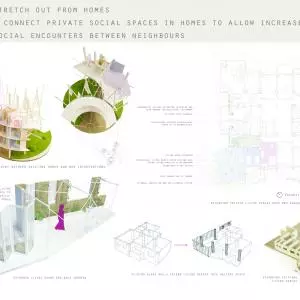
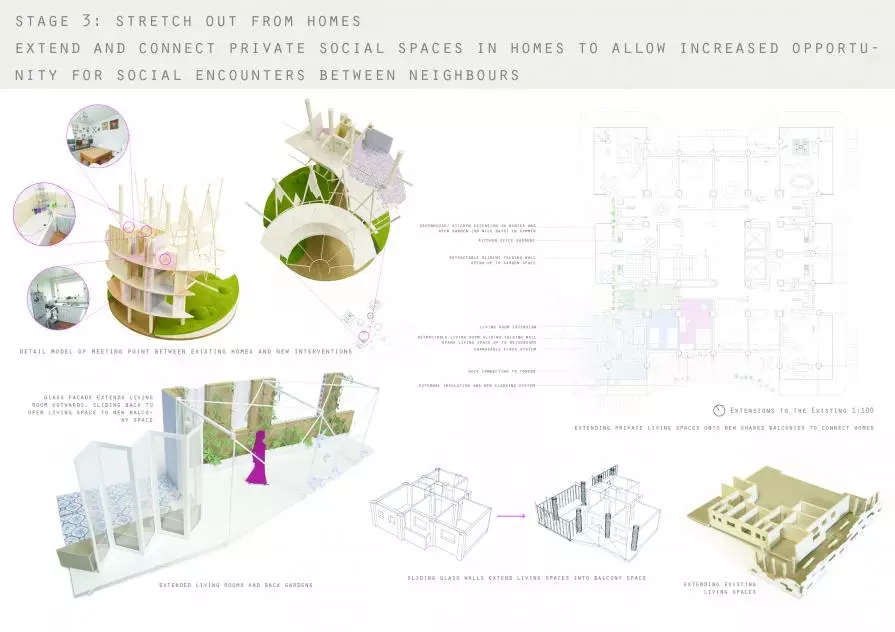

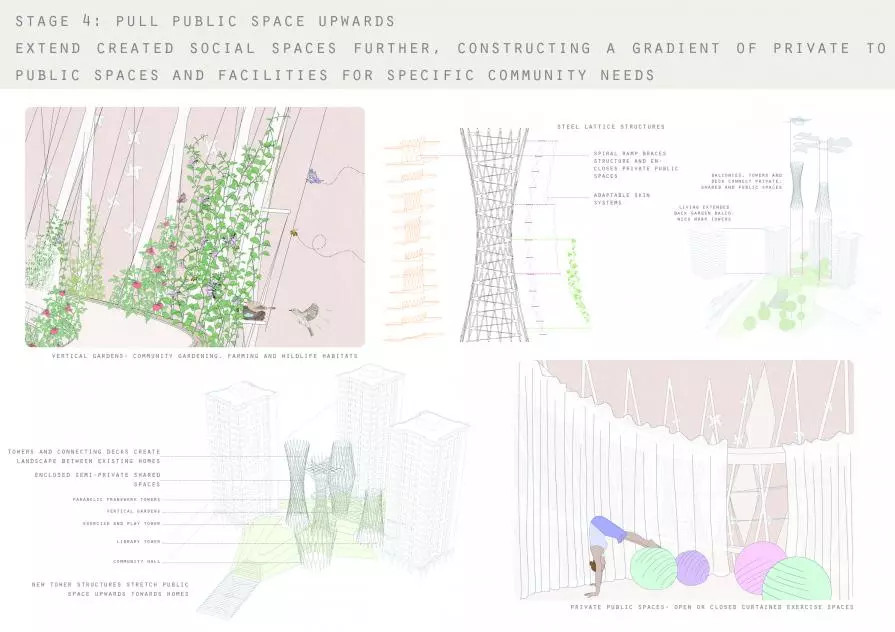
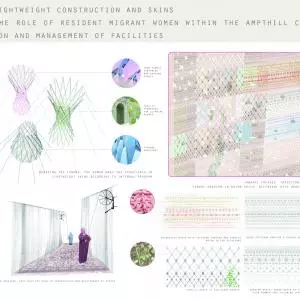
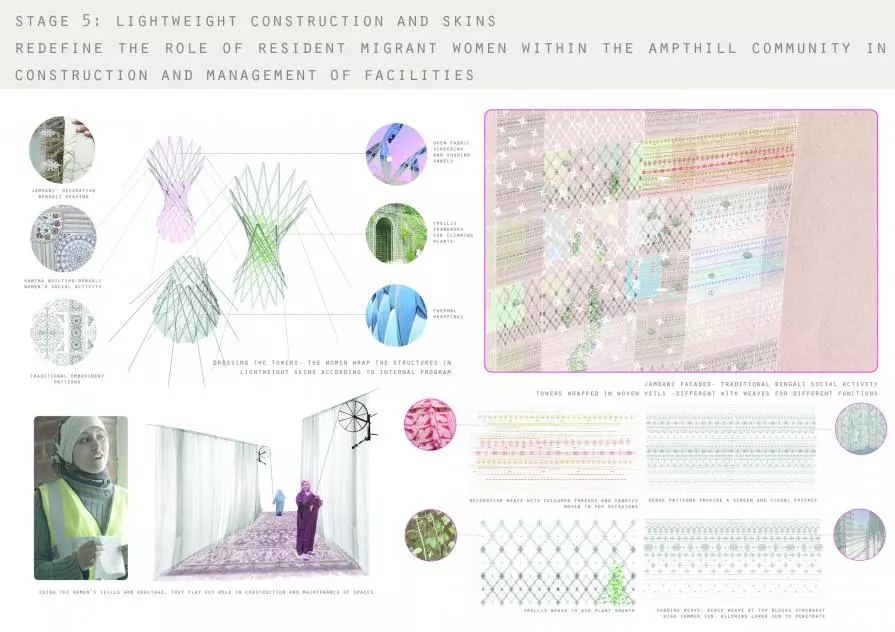


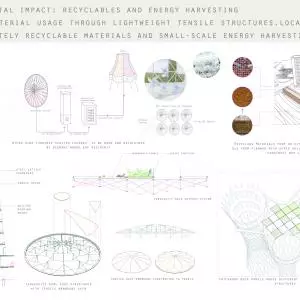
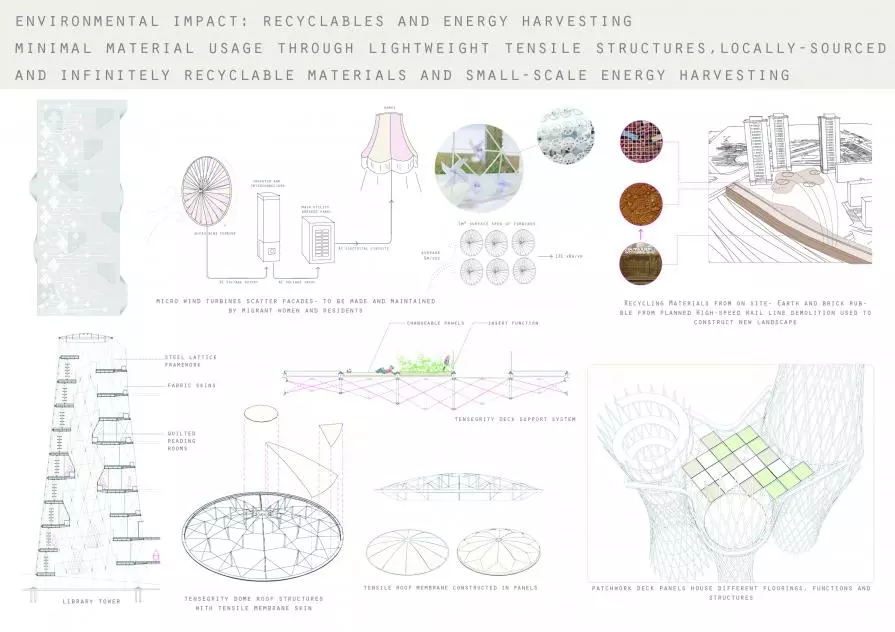
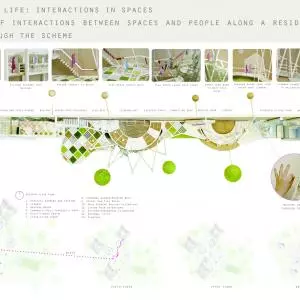
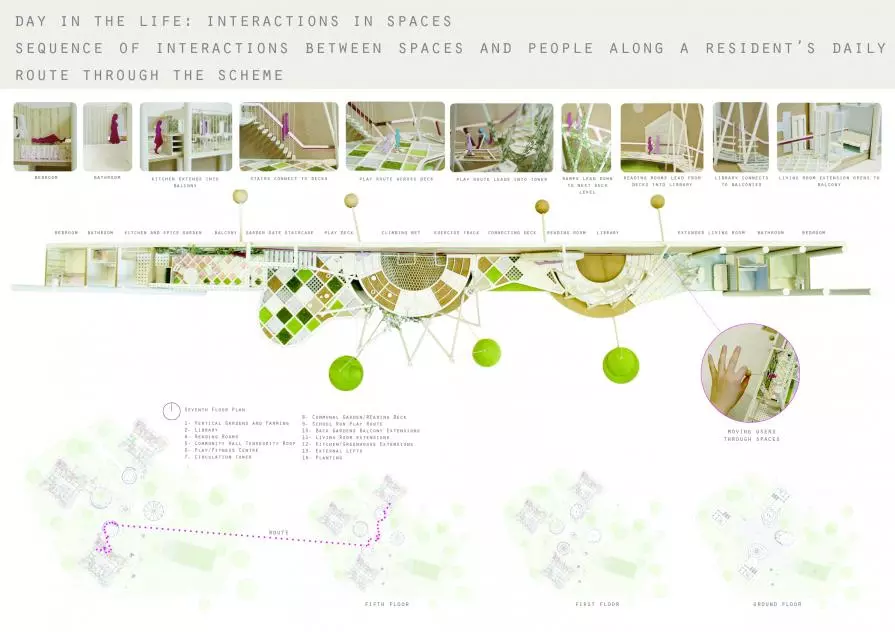







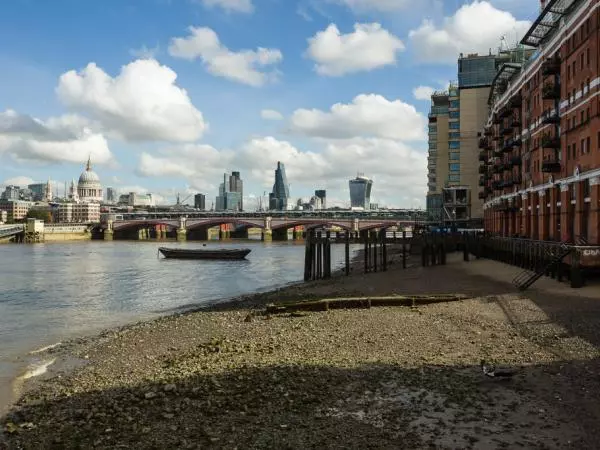
Comments 0
Say something